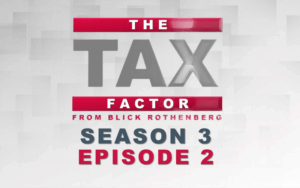Spending Review 2025: Investment Ambitions Face Reality Check
Billions pledged for housing, infrastructure, and innovation but planning delays, tax pressures, and delivery risks could undermine the Government’s bold agenda
11 June 2025 | Authors: Robert Salter, Tomm Adams, Mark Cunningham, Simon Gleeson
The Spending Review sets out a bold vision for investment-led growth, without urgent action to address planning delays, workforce shortages, and fiscal transparency, the Government’s ambitions may be difficult to realise
Housing Investment: Welcome, But Bottlenecks Persist
A centrepiece of the Spending Review is the Government’s pledge of £39 billion over ten years for social and affordable housing. While the ambition is welcomed, Mark Cunningham, Partner, cautioned that the funding alone won’t be enough to “Get Britain Building.”:
The additional £39 billion investment over ten years in social and affordable housing will only help ‘Get Britain Building’ if the current hurdles to housing development can be overcome.
Mark pointed to persistent planning bottlenecks, slow local authority approvals, under-resourced planning departments, and complex regulatory requirements as key obstacles. He also highlighted high build costs driven by rising material prices, labour shortages, and supply chain issues:
If the Government can navigate those challenges, this funding will be welcomed by housebuilders and developers, providing greater certainty and enabling more confident forward planning, Helping the Government reach their goal of 1.5 million new homes.
The Chancellor also announced an additional £10 billion for Homes England, aimed at expanding the Home Building Fund and providing direct loans to developers. Structured as recoverable loans, this funding sits outside the Government’s fiscal rules.
Fiscal Questions: “Where’s the Money Coming From?”
While the Spending Review outlines ambitious spending plans, it remains vague on how these will be funded.
Tomm Adams, Partner, voiced concern over the lack of clarity particularly around pensions:
Rachel Reeves has been suspiciously quiet on the pensions front today, But with an expensive funding plan spanning social housing, scrapping the two-child benefit cap, and massive healthcare and infrastructure investment, I’m not alone in asking, ‘where’s the money coming from?’
Tomm warned that tax rises in the autumn look inevitable, with pensions tax relief likely to be targeted. He cited potential measures such as reducing the annual allowance, reinstating the lifetime allowance, and abolishing salary sacrifice schemes:
We’ve already had an HMRC report on salary sacrifice setting hares running among employers, triggering fears that it will be abolished in the Autumn Budget.
Innovation and Skills: A Mixed Picture
The Spending Review also includes a £2 billion boost for AI and additional funding for skills training. Simon Gleeson, Partner, welcomed the support for start-ups and emerging industries but questioned the speed and effectiveness of deployment:
Although more fire-power for British Bank and extra funds for skills training for the younger generation have been announced, the real test is where and how quickly the extra spending is deployed.
Simon expressed hope that this round of spending would be better allocated to benefit sectors typically supported by private equity and venture capital. However, he also warned that the broader economic context could dampen the impact of these investments:
The big numbers and infrastructure investments announced today are overshadowed by the World Bank’s forecast that the global economy will see the slowest decade for growth since the 1960s.
Tax Rises and Delivery Risks Loom Large
The fiscal implications of the Spending Review were further underscored by Robert Salter, Tax Director. He estimated that the £11 billion annual increase in the Defence budget alone could equate to a 1.5p rise in the basic rate of income tax.
He also raised concerns about the accessibility of the £1.2 billion earmarked for training and apprenticeships, noting that many businesses are unable to benefit due to the restrictive conditions of the apprenticeship levy:
This additional funding may not reach the organisations who need it.
On energy, Robert welcomed the focus on increasing capacity through nuclear and carbon capture projects but warned of potential cost overruns and missed deadlines, issues that have plagued past UK infrastructure efforts:
The Government must ensure history does not repeat itself again.
Finally, he questioned the coherence of the Government’s economic messaging:
While Rachel Reeves talked consistently about economic growth and security, many measures previously announced,such as the increase in employer’s National Insurance Contributions have actually increased unemployment.
The 2025 Spending Review sets out a bold vision for investment-led growth, but without urgent action to address planning delays, workforce shortages, and fiscal transparency, the Government’s ambitions may be difficult to realise. As the details unfold in the coming months, all eyes will be on how and how quickly these promises are delivered.
You may also be interested in

HMRC’s Push for Digital Transformation Risks Ignoring the Core Problem: Tax Complexity

Closing the Fiscal Black Hole: Why Tackling the £46.8bn Tax Gap Should Be Rachel Reeves’ Priority













